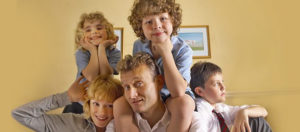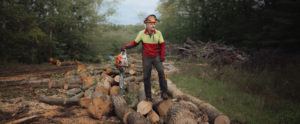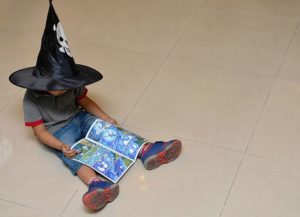Every Leftist project that has bettered people’s lives was born from the radical imagination: the eight-hour work day, the now-disappeared family wage, the end of the transatlantic slave trade. The Left is always the first to point out that states described as natural, or inevitable, can in fact be changed. But the radical imagination can backfire.
This is particularly the case when Leftists try to either remake the psyche or recalibrate the most intimate of our social relationships. Recently, projects to reconstruct (or abolish) family relations have come back into fashion. Sophie Lewis, for instance, asserts that the family is part of a “traditional practice of grooming kids into cis-genderism and heterosexuality”, which demands to “inseminate the minds of kids” with sex-based pronouns. M.E. O’Brien, meanwhile, has argued that the family is a primary enemy of “gender and sexual freedom” that ought to be replaced with “communes”. Both are supporters of “youth liberation”.
What our current family abolitionists don’t acknowledge, however, is that the Left does not have a good record when it comes to changing society through children. In fact, some radical projects centred on them have gone very, very wrong. The late Sixties offers an illustrative, if extreme, case: that of the West German Kinderläden, or “children shops”.
Taking their name from the empty shops in which they were typically established, the Kinderläden were childcare centres, organised and collectively run by radical parents and activists. In a documentary aired on German national television not long after the first Kinderläden was founded in Frankfurt, the movement revealed its mission. Titled Educating for Disobedience, the film contrasted the most severe form of institutional education with the more permissive scenarios of these “children shops”, portraying the Kinderläden as a healthier and more egalitarian way of caring for young children.
Many radical parents were immediately convinced: within two years of their founding, there were Kinderläden in at least 30 cities. Few alternatives were available for parents who needed childcare during the working day, besides church or government-run centres, where discipline was strict and complete obedience was expected. The Kinderläden fulfilled a clear material need. Unfortunately, some of the radical Leftists behind the project believed it could do more than simply provide affordable childcare; they believed it could actually eliminate the psychological causes of fascism.
According to historian Dagmar Herzog, “the Kinderläden movement represented a nationwide experiment to put into concrete practice theories about human nature gleaned from young radicals’ rediscovery of … the Frankfurt School”, a school of sociology influenced by Marxism and Freud that was popular in interwar Germany. One of these theories was that the family was the “most important place of reproduction” for the authoritarian state — an idea which persists to this day in Leftist calls for family abolition; the family, in this framework, is seen as a place of “privatised care”, where children are taught the norms of capitalist society, and how to obey authority.
Herzog describes how the Kinderläden attempted to disrupt familial relations: because they judged “the nuclear family to be ‘rotten to the core’, many Kinderladen activists … actively worked to rupture what they called parent-child “fixations”. Children as young as two were actively encouraged to be self-directed; adults were discouraged from intervening in their interactions. The aim was to make children independent, and less reliant on external authorities such as bosses, the government or the church.
Even more controversial, however, was the focus on freeing children from sexual inhibitions. Many of the Kinderläden were influenced by the work of Wilhem Reich, who believed that childhood sexual repression led to authoritarian and even fascist tendencies. Thus, in the Kinderläden, children were not corrected when they touched their own genitals or those of others; in fact, such behaviour was actively encouraged. Disturbingly, some of the educational tracts produced by this movement explicitly supported sex between children and adults. One, quoted in a Spiegel article, proclaimed: “Children can learn to appreciate eroticism and sexual intercourse … It is valuable for children to cuddle with adults. It is no less valuable for sexual intercourse to occur during cuddling.” The notes published by a Berlin collective, the Rote Freiheit, described in detail how pornographic material and simulated sex were daily parts of the children’s education.
Not all parents whose children participated in the Kinderläden were convinced that sexual interactions between children and adults were beneficial, but some worried that their own sexual inhibitions might be the problem. One mother in a Stuttgart Kinderläden remembered how, when children reached for her genitals, she hesitated to stop them for fear of appearing to be repressed, even though it made her deeply uncomfortable. Finally, she said to the children: “That hurts. I don’t like that.” Alexander Schuller, one of the co-founders of a Kinderläden in Berlin, himself a sociologist, explained his own misgivings this way: “I found it incredibly difficult to take a stance. I felt that what we were trying to do was fundamentally correct, but when it came to this issue, I thought: This is crazy, it just isn’t right. But then I felt ashamed of thinking that way. I think many were in the same position.”
The concerns of adults, rather than being taken seriously, were seen as damaging. Monika Seifert, a co-founder of the first Kinderläden and a sociologist who had studied directly under Theodor Adorno, worried that the children in her Kinderläden were suppressing their sexual desires because of the “unconscious reaction of the adults”. In other words, children couldn’t be fully liberated in their sexuality because their parents weren’t.
Whether or not the children were interested in liberating their sexuality was not a question many activists seemed interested in asking — although Schuller did note that, though his own children enjoyed going to the Kinderläden, “they thought the constant chatter of sex was horrible”. The writer Sophie Dannenberg, reflecting on her own experience as a 3-year-old in a Kinderläden, never understood the adults’ obsession with childhood sexuality. “It was too complicated,” Dannenberg writes; the children just “wanted to carve and to climb”.
Few adults with childhood experience of the Kinderläden movement have spoken openly about their experience. Nissim — who was four years old when he was photographed naked in sexually explicit scenes with a three-year-old girl — refuses to talk to journalists about these days, but told another former Kinderläden member that he looks back at them in “horror”. Sophie Dannenberg’s account of her time points to something else, however: a need, in some victims, to understand the motives of the adults — and even forgive them. “They had to rape themselves, in a way, to do all that,” she writes. “Everything was also wildly confused together: lust, ideology and narcissism. They said they had to do these things in the service of progress. And it later became embarrassing for them.”
Alexander Schuller is less forgiving. Despite seeing the material benefits of the Kinderläden as good, he condemns the “pedosexuality” of some of the activists, describing “the ideological compulsion of the Left” to remove sexual taboos as a kind of “friendly totalitarianism”.
Though we could learn much from paying attention to the role of Leftist ideology in justifying abuse, the case study of the Kinderläden is not well known on the English-speaking Left. The Right, however, has learned to wield it. Their criticisms too often form a part of antisemitic conspiracy theories about “Cultural Marxism” and the Frankfurt School (which was associated with several high-profile Jews). This makes it quite easy for Leftists to dismiss the lesson of this moment in history: that our radical imagination can stray dangerously far from reality.
The Frankfurt School in many ways embodies this danger, and the Left should not be afraid to say so. Its belief that authoritarianism was caused by sexual inhibitions — and reproduced by the nuclear family — strayed quite far from traditional Marxist understandings of material struggle and physical reality. The School might more usefully have imagined the best way to organise the working classes to lobby for higher wages — rather than trying to re-engineer the sexual expressions of the masses, in the belief that revolutionary change would necessarily follow. Instead, what followed was a major shift in Leftist analysis, which has resulted not in revolutionary change but in identitarian strife.
Today, rather than doing the very difficult work of changing the material conditions of people — which requires convincing them to organise with each other towards a common goal — some Leftist radicals channel their energy into shaping the way people think. At such times, Right-aligned criticism has come uncomfortably close to the truth, and our responses to those criticisms have too often been contradictory and hastily dismissive.
Understanding the radical imagination’s role in the Kinderläden movement — and its mistakes — is crucial, especially as ideas such as family abolition and youth liberation have been recently revived in socialist and anarchist discourse. M.E. O’Brien has advocated for “crèches replacing a child’s individual play room” and believes “sex and sexual pleasure could become collective concerns”; Sophie Lewis bemoans how little the “problems of ‘adultism’ and ‘adult supremacy’ are taken seriously”, let alone the matters of “child sovereignty”. Those who believe it possible — or even a good idea — to transform society by reconfiguring intimate relationships rarely account for how previous attempts to do so have caused harm. And the Left ought to lead the way, rather than waiting for our political opponents to force us to hold ourselves to account.
The Kinderläden movement eventually jettisoned its more radical elements — a process accelerated by various criticism from former students and educators. Indeed, by re-orienting the radical imagination to address practical concerns, rather than dangerous attempts to remake social relations, the Kinderläden actually flourished. Today, there are around 7,500 collective childcare centres in Germany, no longer seeking to eradicate the psychosexual precursors of fascism, but simply doing exactly what people always wanted them to do: support working parents.
This is what a good Leftist project should do: better the material conditions of families, meet a crucial need, and provide a practical model for collective organisation. This can only happen, though, when we ground the radical imagination in reality.
Disclaimer
Some of the posts we share are controversial and we do not necessarily agree with them in the whole extend. Sometimes we agree with the content or part of it but we do not agree with the narration or language. Nevertheless we find them somehow interesting, valuable and/or informative or we share them, because we strongly believe in freedom of speech, free press and journalism. We strongly encourage you to have a critical approach to all the content, do your own research and analysis to build your own opinion.
We would be glad to have your feedback.
Source: UnHerd Read the original article here: https://unherd.com/




